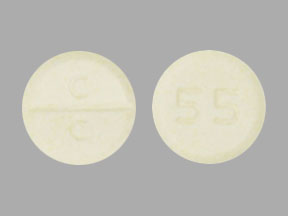Clozapine Interactions
There are 949 drugs known to interact with clozapine, along with 20 disease interactions, and 4 alcohol/food interactions. Of the total drug interactions, 530 are major, 410 are moderate, and 9 are minor.
- View all 949 medications that may interact with clozapine
- View clozapine alcohol/food interactions (4)
- View clozapine disease interactions (20)
Most frequently checked interactions
View interaction reports for clozapine and the medicines listed below.
- Abilify (aripiprazole)
- Aspirin Low Strength (aspirin)
- Ativan (lorazepam)
- Cogentin (benztropine)
- Colace (docusate)
- Cymbalta (duloxetine)
- Depakote (divalproex sodium)
- Geodon (ziprasidone)
- Haldol (haloperidol)
- Invega (paliperidone)
- Invega Sustenna (paliperidone)
- Klonopin (clonazepam)
- Lamictal (lamotrigine)
- Latuda (lurasidone)
- Lexapro (escitalopram)
- Lithium Carbonate ER (lithium)
- Lyrica (pregabalin)
- MiraLAX (polyethylene glycol 3350)
- Paracetamol (acetaminophen)
- Prozac (fluoxetine)
- Risperdal (risperidone)
- Seroquel (quetiapine)
- Synthroid (levothyroxine)
- Topamax (topiramate)
- Vitamin B12 (cyanocobalamin)
- Vitamin D3 (cholecalciferol)
- Vraylar (cariprazine)
- Xanax (alprazolam)
- Zoloft (sertraline)
- Zyprexa (olanzapine)
Clozapine alcohol/food interactions
There are 4 alcohol/food interactions with clozapine.
Clozapine disease interactions
There are 20 disease interactions with clozapine which include:
- dementia
- agranulocytosis
- anticholinergic effects
- hepatitis
- acute alcohol intoxication
- CNS depression
- NMS
- aspiration
- seizure
- hyperglycemia/diabetes
- hypotension
- lipid alterations
- weight gain
- hyperglycemia
- renal dysfunction
- thromboembolic events
- hyperprolactinemia
- liver disease
- parkinsonism
- tardive dyskinesia
More about clozapine
- clozapine consumer information
- Compare alternatives
- Pricing & coupons
- Reviews (80)
- Drug images
- Side effects
- Dosage information
- During pregnancy
- Drug class: atypical antipsychotics
- Breastfeeding
- En español
Related treatment guides
Drug Interaction Classification
| Highly clinically significant. Avoid combinations; the risk of the interaction outweighs the benefit. | |
| Moderately clinically significant. Usually avoid combinations; use it only under special circumstances. | |
| Minimally clinically significant. Minimize risk; assess risk and consider an alternative drug, take steps to circumvent the interaction risk and/or institute a monitoring plan. | |
| No interaction information available. |
See also:
Further information
Always consult your healthcare provider to ensure the information displayed on this page applies to your personal circumstances.


